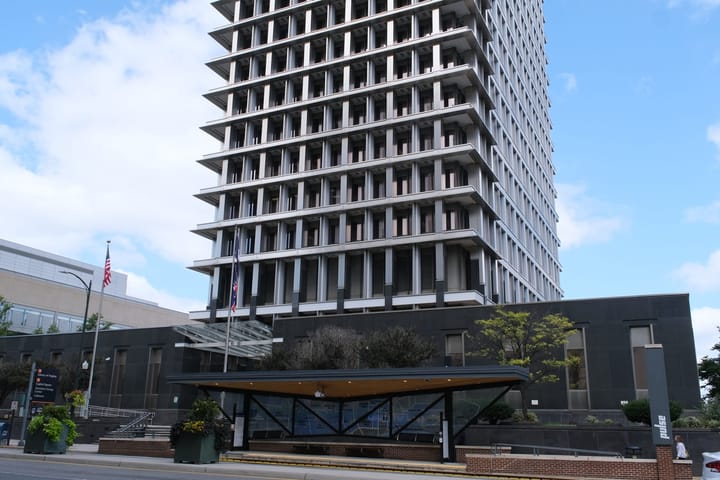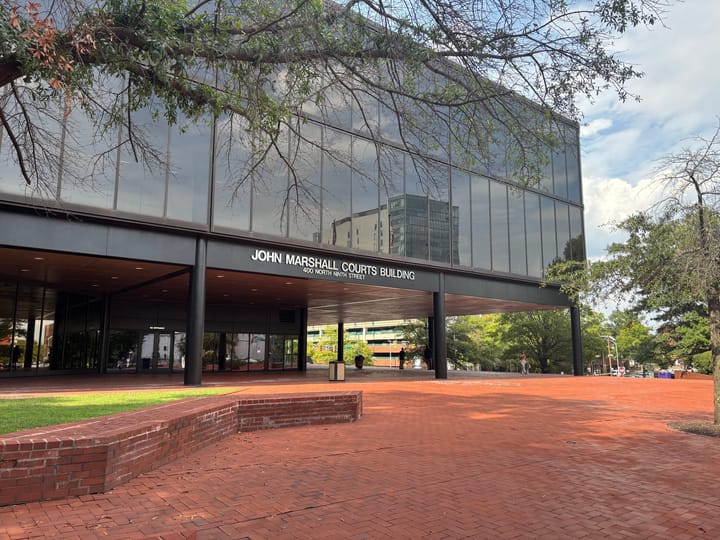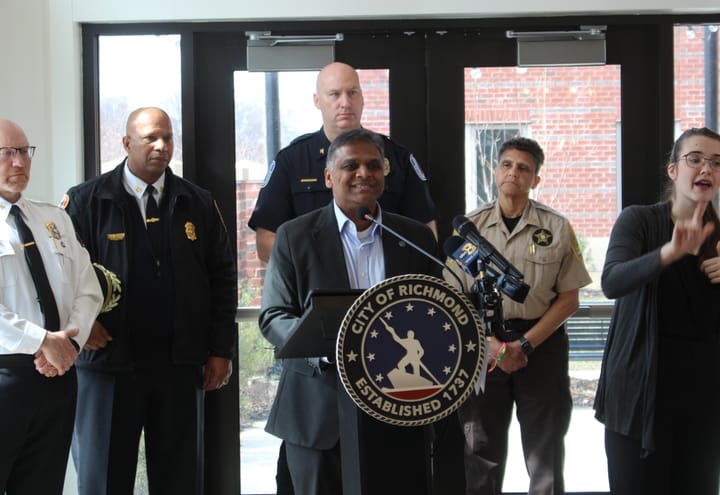First RPS-Council joint meeting in 3 years produces good feelings, promises of more discussion
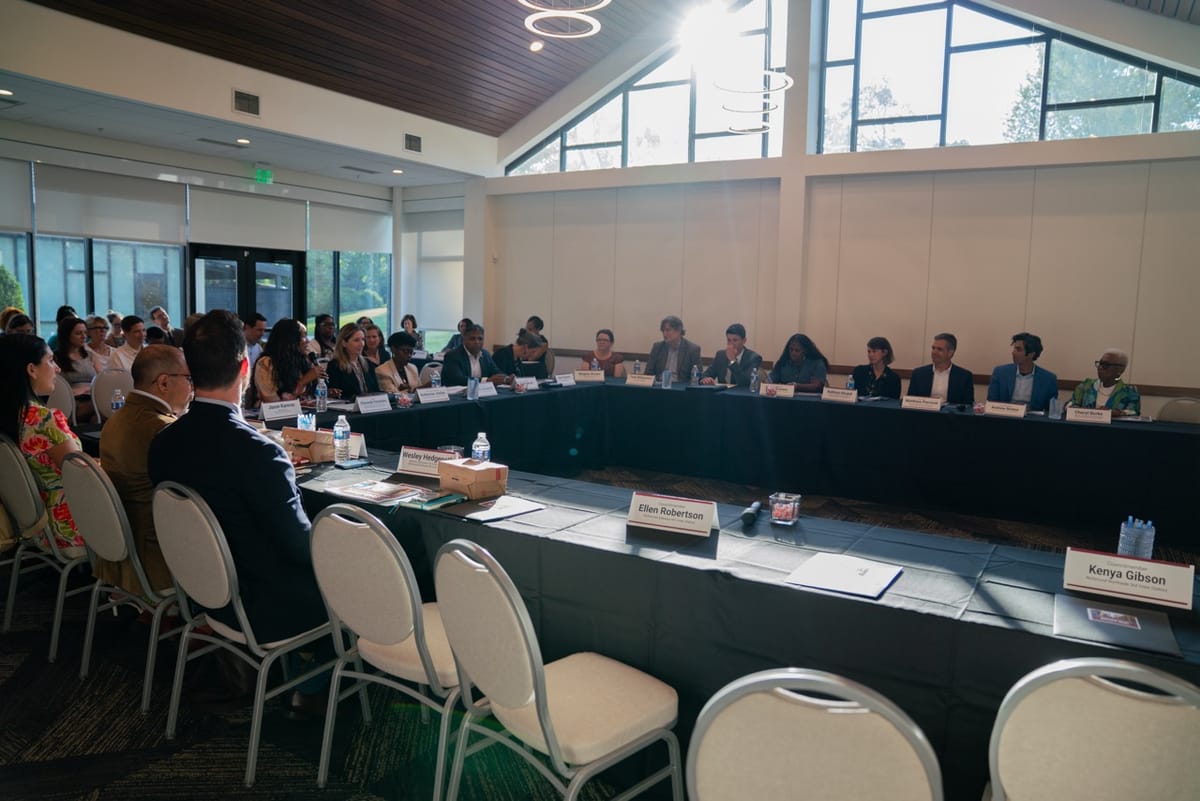
Richmond’s top leaders agree on at least one thing – the state doesn’t provide as much funding as it should.
For the first time in three years, Richmond School Board members met with their City Council counterparts, as well as the mayor and superintendent, on Thursday night at Maymont.
The existence of the meeting itself marked a breakthrough. The last similar sessions were the Richmond Education Compact meetings, which were often acrimonious and ended in 2022.
The meeting was meant to get both groups up to speed on how much money RPS and the city have, and how their budgets work.
Thomas Shields, a professor at the University of Richmond who moderated, declared the meeting a “huge success.” Both groups agreed to continue the conversation moving forward.
During the discussion, Mayor Danny Avula said the recent budgeting process showed that the way education is funded in the city is “complicated.”
“Making sure that we understand the realities of funding and what makes up funding teams and what the challenges and what the opportunities are is really important, and will help us get more aligned around that mission of equipping our kids,” he said.
Superintendent Jason Kamras acknowledged the difficult choices city leaders make when choosing between funding priorities, reminding attendees that the families who send their children to RPS live, work and commute in Richmond.
“So we are truly in this together," he said. "This is about families, not just kids or adults.”
Under the current system, the School Board submits a budget proposal to City Council, but the Council ultimately determines how much money will be allocated for education that year.
The city is putting together a work group that will discuss creating a funding formula, which would help RPS have certainty on how much the division will get from the city each year. That possibility wasn't discussed on Thursday, but representatives from the groups will convene in September to begin talks.
School board member Cheryl Burke (7th District) raised the question of what would happen next. She said she was "tired of patching," and didn't feel she was leaving with any solid steps forward.
State funding a point of contention
Both groups gave presentations showing their budgets, highlighting constraints and what each entity expects to face in the next fiscal year.
Superintendent Jason Kamras discussed Virginia's funding formulas, and how they don't account for the number of high-need students in RPS. He also spent time on the Local Composite Index, which the state uses to determine how much a locality can afford to pay for education.
As a result, the state severely underfunds RPS, he said, referencing a study conducted by JLARC, the state’s independent watchdog. In turn, that puts more burden on the city to make up the difference.
“As it pertains to education funding, the answer lies not in City Hall, but in the building across the street,” Kamras said, referring to the General Assembly.
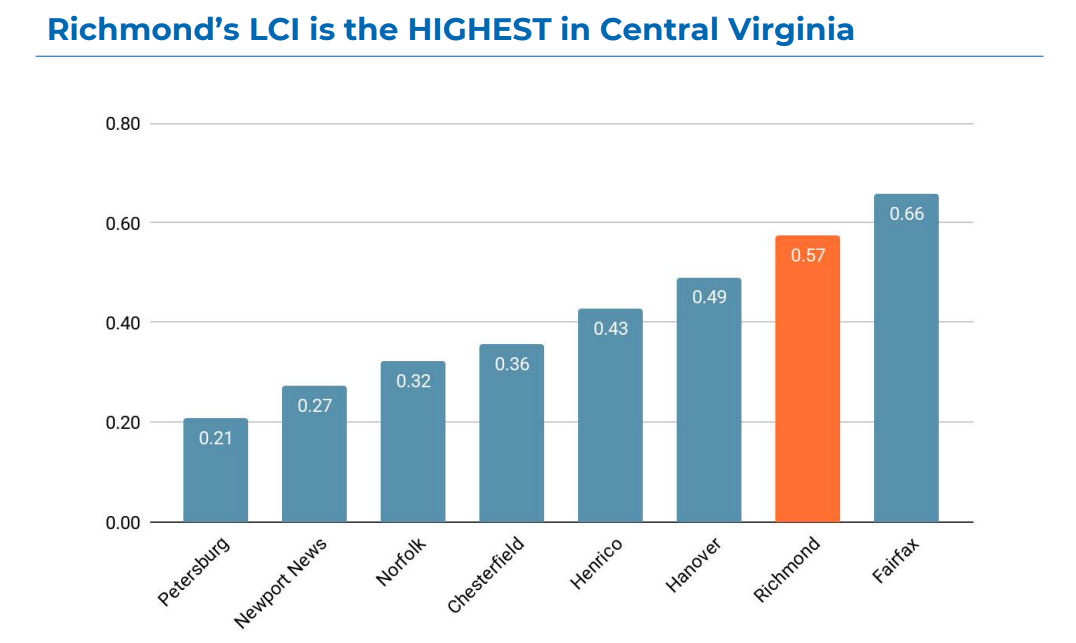
Kamras also said the division doesn’t have enough money to keep up its aging buildings, noting that RPS has a $2.5 million budget for maintenance, but needs $37 million to address urgent maintenance problems.
He said he division is already $20.1 million behind for next year, due to collective bargaining commitments, projected health insurance increases and the expiration of one-time income like historic tax credits from restoring Fox Elementary.
Similar issues exist for the city too, most particularly the number of state-owned buildings in the city that are not charged property tax.
City Budget Director Meghan Brown said that if the city were to tax all exempt buildings, Richmond would receive about $120 million extra each year, a number that drew gasps from the room.
Brown added that the city is also fiscally stressed, and has difficulty raising additional local revenue in comparison to neighboring counties like Chesterfield, Hanover and Henrico. The city is also landlocked, which prohibits Richmond’s ability to attract business opportunities and creates competition for residential and commercial space.
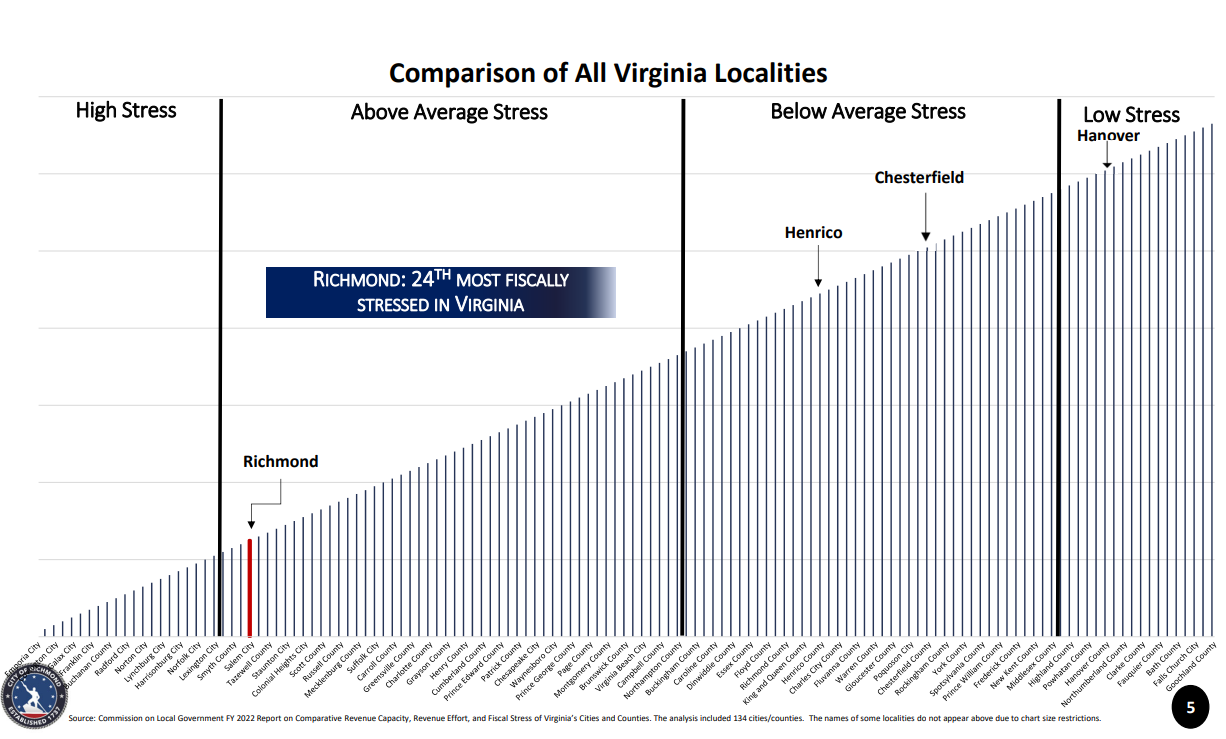
Councilwoman Sarah Abubaker (4th District) said the city’s real estate tax rates are “unsustainable” for Richmonders, and could change the character of the city by pushing out longtime residents.
“We can no longer maintain this budget on the backs of individual residents,” she said.
Councilwoman Stephanie Lynch (5th District) said the city should consider negotiating with the state to convert some of its vacant buildings into office spaces or multi-family affordable housing.
“There’s a lot of uses that could generate revenue other than mostly vacant state agency buildings that are not paying virtually anything to taxes,” she said.
Other school board members suggested raising the tax on corporations in Richmond, but the idea wasn't given much discussion. Instead, both groups coalesced around the perceived state shortfalls.
All attendees appeared to agree to make a coordinated effort to lobby for more funding from the state when the next legislative session begins at the General Assembly.
School board member Katie Ricard (2nd District) suggested that both RPS and city make their messaging and requests to the state similar and tight. Council President Cynthia Newbille (7th District) suggested that the request should also extend to national representatives in the District of Columbia.
Lynch and Wesley Hedgepeth (4th District School Board) also noted the potential “great opportunity” to address many of the state’s and city’s problems if candidate Abigail Spanberger wins the upcoming governor’s race, something Kamras has previously noted as well.
The conversation remained relatively cordial, and largely steered clear of specifics.
Councilwoman Kenya Gibson (3rd District), herself a former school board member, offered a number of suggestions, including a thorough audit of the RPS budget and a prohibition on using one-time funds for recurring expenses.
“It sounds like we got a start to our budget audit,” school board member Stephanie Rizzi (5th District) said in response.
School Board Vice Chair Matthew Percival (1st District) challenged the Mayor and Council, offering data that he said showed other localities put more investment towards education from their budgets than Richmond does.
“When we look at public safety and we look at the per capita spending on public safety, we’re number one in the Commonwealth. We’re spending more than anybody else per capita on safety,” he said. “We get to education, we rank 22nd out of the cities … there is a lot more that we can do as a community.”
Avula noted those numbers can lack context, given that different localities fund and account for expenses in different ways.
The mayor said part of both groups' jobs is to make the case to residents that investing in education is important, noting that ultimately the city's priorities are set by its residents.
Contact Reporter Victoria A. Ifatusin at vifatusin@richmonder.org. This article has been updated to clarify that the meeting was jointly convened by the groups.
The Richmonder is powered by your donations. For just $9.99 a month, you can join the 1,000+ donors who are keeping quality local journalism alive in Richmond.


